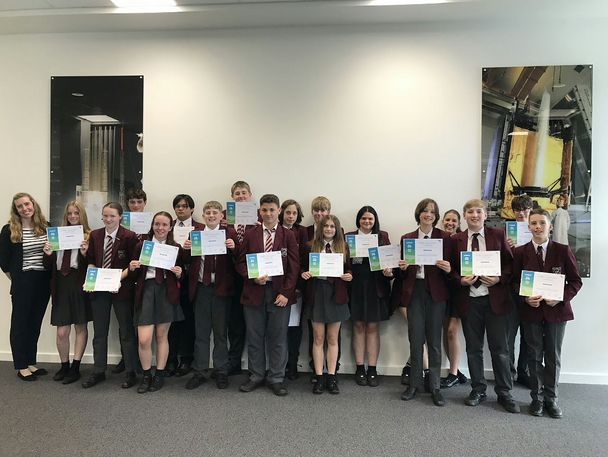Flagship UK science and technology education programme

Airbus’ ‘We Build It Better’ (WBIB) programme is designed to increase engagement in science and technology subjects in young people aged 12-14 years. The 18-week programme is a practical, industry-driven curriculum that encourages innovative thinking and promotes skills in coding, engineering, 3D-printing, electrical competencies and business leadership. The lessons equip students with a foundation from which to explore a range of STEM-related careers.
The WBIB kit contains industry-grade tools and equipment as well as digital material and resources for students and teachers. It has been developed to provide hands-on learning and includes different elements for gifted students, special-needs students, English-language learners and remote learners, to ensure inclusivity. The industry-designed kits incorporate 21st Century work skills into the curriculum, with a focus on practical learning, encouraging higher-level thinking skills and instilling leadership qualities into our next generation of budding scientists and engineers.
The ‘We Build It Better’ pilot has delivered social impact over and above those anticipated in its Trailblazing school. The Sele School has reported a significant improvement in attendance levels, an increase in the number of students choosing science subjects and modern languages for GCSE, and improved academic grades across the board. There has been a significant increase in the number of female members of the WBIB cohort choosing to study Triple Science GCSE, proving that WBIB will help to address the gender gap in STEM professions over the longer term. The students’ hard work was recognised in a Graduation Ceremony held at Airbus’ Stevenage site in July.

In partnering with Airbus, the Sele School hoped that students would recognise that their background is not a barrier to success and that more female pupils would identify themselves as STEM students. “We are so grateful for the positive impact this partnership is having on our young people and their families,” said Chris Quach, Headteacher at the Sele School. “Sometimes, the biggest impact any organisation can have isn't measured by KPIs, but instead reflected in what we all know exists but can't always scientifically measure; the culture, the ethos, the sense of community and purpose which we can feel and see, but not always quantify.”
The WBIB programme is part of Airbus’ ‘Community for Space Prosperity’ (CUSP) initiative.
CUSP is an Airbus initiative to collaborate across the space ecosystem to connect, inspire and to grow the UK Space sector. CUSP aims to grow the activity of the UK space supply chain, research and outreach activities, with opportunities for suppliers, researchers and those joining the Space industry. Airbus wants to ensure that it continues to grow the Space industry in the UK.
This pilot scheme has been a true success, not just in terms of increasing engagement in science-based learning but in the specific outcomes that you can see in the school, for example 60% of the pupils went on to take triple science as a GCSE, and their attendance improved by 58%.” said Kata Escott, Managing Director, Airbus Defence and Space. “That is what CUSP is all about - building the UK’s Space ecosystem and bringing real opportunity through collaboration.”
‘We Build it Better’ was developed with FlightWorks Alabama and Airbus in Mobile, and more than 500 schools across the US are now in receipt of the kits. Following the success of the US scheme, Airbus launched the UK pilot in the Stevenage area and aims to expand the scheme in the future, including the ‘We Will Build it Better’ (WWBIB) primary school version. This new scheme will be rolled out to schools in the 2024/2025 academic year and aims to build skills and interest in STEM in the region.



